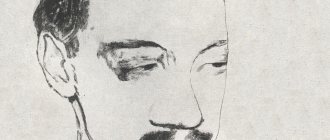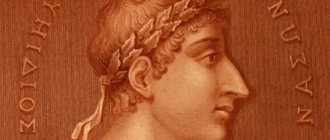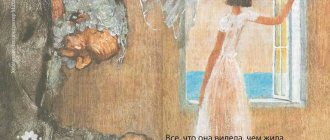"Sweet Salt of the Bosphorus" (2008)
Elchin Safarli did not even imagine, when taking on his first brainchild, that the collected notes would one day become a real book, and he himself would become a writer. Meanwhile, the book turned out to be good, as evidenced by its rating on Goodreads - 3.81 out of five possible points.
In the book, Safarli Elchin talks about the ancient city of Istanbul, its inhabitants, their friendship and love. The main character comes here in the hope of forgetting about the past, replacing memories of it with fresh impressions.
Reviews of the book “Sweet Salt of the Bosphorus” by Elchin Safarli
For those who are fans of the East, Turkey, namely Istanbul, gourmets, aesthetes, creative people, for those who seek happiness in little things, who like to cook interesting dishes, who love comfort, solitude, nature, the sea, who think about life, about the past , about people. Will sweeten the sad autumn mood, suitable for reading when you are “alone at home”. Safarli Elchin talks about the “city of the soul” (Istanbul), about people, their destinies, about love and friendship. The main character, trying to forget the past, wants to escape from memories, from himself, the Istanbul wind is always with him, comforting him. A calm, even plot, captivating with its beauty and sincerity. “ Sweet Salt of the Bosphorus ” is my first acquaintance with Safarli’s work. I read it avidly with a pencil and notepad in my hands. This is not only a pleasure from the reading process, it is also a sea of useful information: names of the best places in Istanbul, recipes for Turkish (and not only) dishes, names of artists, poets, singers and much more. Türkiye has been on my bucket list for a long time, this book further fueled my motivation. In absentia, together with Safarli and his heroes, I walked along these streets, visited mosques, climbed Chamlyj Hill to enjoy the view of the Bosphorus, felt the touch of the northeast wind, had a heart-to-heart chat with the sea, inhaled its smell with notes of oriental spices. We listened to our beloved Zemfira, drank strong Turkish coffee with baklava, shouted with the seagulls... The sweet salt of the Bosphorus is like the beauty of sadness, the sweetness of autumn sadness, the sweetness of the salty sea... The difficult past has its own charm, it should not be forgotten, you need to learn to live with it. Salt gives the dessert a rich taste; it is not for nothing that sea salt is even added to chocolate truffles. So life is a contrast of salty and sweet, a unity of opposites. West and East in one city, finding harmony and balance. The most important advantage of the book is useful, high-quality, pleasant time alone with yourself and your thoughts, a kind of aromatherapy. Safarli reveals the soul of Istanbul to the reader and charges him with positivity. It’s more difficult to talk about the downsides; there are practically none, with the exception of the author’s slightly subjective opinion about religion and same-sex marriage. But great respect for boldly addressing these topics. There are no abstruse phrases, plot depth, or complex text structures. But all this is not necessary, since the purpose of this book is different. Don't overwhelm the reader, but let him unwind and relax. “Sweet Salt of the Bosphorus,” in my opinion, is very relevant for the modern world, for our fast pace of life. She reminds us to stop, forget for a moment about pressing problems, noticing the beauty of a newly blossomed red tulip, the optimism of a yellow sunflower, inhale the aroma of our destiny and live to the fullest, giving happiness to ourselves, loved ones and the world. Thank you, Safarli! We became friends. See you soon with a cup of coffee, lavender candles, Zemfira’s songs and your next book “I want to go home.”
“There without going back” (2008)
This work has been reprinted three times in hardcover—twice in 2008 and again in 2017. The book's rating on the social cataloging portal Goodreads is 3.68 points.
“There Without Back” tells about a Russian girl who ends up in Turkey. Alexandra settled in Istanbul and is engaged in prostitution. Her diary talks about real life without embellishment, and also about her love for the Bosphorus, the sea and cats, and later about a great feeling.
Alexandra meets a guy named Ozan. He grew up in a wealthy Turkish family and was barely 18 years old. He became her client, but the girl fell in love with the guy sincerely and strongly. Will Alexandra and Ozan be lucky or will life separate them?
Legends of the Bosphorus (collection)
4
...You find sincerity more often among animals than among people...
...There are cities that absorb you entirely. On their territory you feel collected - homesickness dissipates, dull pain in the muscles disappears, cream-colored sadness is replaced by orange faith in the future. The faith that fills you when you take off a warm hat from your head, untie a scarf, exposing your face to the gusts of the sea wind... Istanbul is just such a city. He is used to dominating - a neutral position is not for him.
If you decide to move to Istanbul, then for a long time. If Istanbul accepted you into its arms, then forever.
You quickly become attached to him. He has deep blue eyes with a picturesque bottom, where mannered jellyfish and fish with wandering gray-green eyes live. He has a velvety voice - sickly fresh, like the frosty breeze of the winter Bosphorus, courageously strong, like Turkish coffee, alluring, like freshly baked baklava in honey syrup.
In a word, Istanbul does not let you go, you do not let go of Istanbul. Maybe people just quickly get used to good things?..
I often take a walk along the embankment early in the morning. I get up at five in the morning and head to the center of peace. There, every day I am greeted by the call to Sabah prayer[7], coming from the royal Hagia Sophia[8], the sound of the surf and a playful mongrel with long ears. He named her Aydinlyg[9]. He called it for its pure look - the eyes are clear and transparent, like the water of a stream at the foot of the mountains in southern Turkey... She runs up to me, wagging her tail. He rubs his muzzle against my rough corduroy trousers. Sad. It’s sad that today you see such sincerity more often among animals than among people...
I pull out a brown paper bag with dog biscuits from my jacket pocket. Filled with veal liver. No, these are not my dog's leftovers. I don't have it. I'm going to start it. In the meantime, I’m buying this delicacy especially for Aydinlyg... The long-eared goddess is devouring cookies, and I am increasingly aware of the scale of my own loneliness. I throw pale blue stones into the Bosphorus, thereby getting rid of the fragments of mental pain. The pain that I brought with me to Turkey. Pain from which the Bosporus will heal. He promised. “Hey, Bosphorus, do you keep your promises?..” In the company of Bosphorus, loneliness is not oppressive and corrosive. It loses its dark outlines and becomes gray, like a spring cloud. Over time, the natural magic of the great strait works wonders - the waves wash away the layer of loneliness. Aunt Nilufer convinced me of this. “Allah brought me to the Bosphorus so that he could cure me of longing for Mahsun... Over time, the pain of loss disappeared. Now my melancholy is light, filled with the desire to live. Trust me, you idiot[10],” says the gray-haired Turkish woman, raising her hands to the sky...
…Today is the thirty-fourth day of my morning meetings with the Bosporus. Today is the thirty-fourth day of my meetings with Aydinlyg. And after Bosphorus heals me, I will come to visit him again. I will come with Aydinlyg. “Why buy a dog if I already have one?” And what? Great idea!
...I take Aidinlyg, who has grown fat over the last month, into my arms, hug her warm, furry body, and return home. She is glad. Licking my ear, whining happily. No one had ever carried Aydinlyg in their arms... Only four days later did he realize that he was completely cured of loneliness. Bosphorus sent Aydinlyg to me. She turned out to be my doctor...
...Since then I still come to the treasured shore. At the same time, take Mrs. Clarity for a walk and meet the Bosphorus. And further. I decided. I am finally moving to Istanbul. One of these days I’m going to Baku.
I'll pack my things and come back here. To the Bosphorus, to Aydinlig. Luckily for me...
...They say that in Istanbul everything is coherent and harmonious, just like in nature. The chaotic rhythm in the soul of a melancholic metropolis, the soothing hum of the Bosphorus, the amusing chatter of curious seagulls over the Golden Horn... In a word, the atmosphere is fabulous - without a touch of mysticism. However, this is only at first glance. The mysticism of Istanbul exists, revealing itself only to a select few. The mysticism of Istanbul resembles a colorful Cuban woman with long ruby earrings on her elongated earlobes. With a strong cigar in his dark purple lips. Gifted with clairvoyance, a Cuban woman sins with fortune-telling using tattered cards. However, in his tobacco-smelling little room, he tells fortunes only to “people with devils in their eyes.” “I tell fortunes to those who believe. I don’t indulge in self-indulgence,” she categorically declares in a hoarse bass voice... So is Istanbul. Its magical flair of fiery orange hue envelops only those who believe, feel, and touch. There are not many of them. I am one of them...
My great-grandmother Pyarzad, a wonderful Azerbaijani of Turkish roots with furrowed eyebrows, often told fortunes. Then to me, a nine-year-old boy, such “procedures” seemed like just another game. However, the magic of this game captivated and captivated.
Pyarzad-nene[11] with her wrinkled hands squeezed the juice of a late November pomegranate into a cracked, ancient bowl, and then, setting fire to pieces of cotton wool, threw them into the dark red liquid. “Now I’ll see the picture... Don’t look, balam[12]... You won’t see it anyway...” she chirped, peering into the bowl. I, dressed in orange shorts, sat spellbound on a bamboo chair, watching my granny. Meanwhile, she began to predict. Predicting my illness, which later turned out to be mumps, my departure with my mother “to neighboring lands,” that is, to Turkey, my admission to Ankara University there... Since then, I sincerely believe in magic. Especially the magic of Istanbul. It smells like fragrant rue[13]. Many Muslims, having dried this herb under the lemon rays of the sun, call it “uzyarlik”. Set on fire in a metal pot. Babies, young people, and adults are doused with the emanating stinking smoke. As they explain, “the best remedy for the evil eye”...
…The magic of Istanbul enveloped me on one rainy autumn day. The city of the soul was literally drowned in heavenly water - rain streams rushed along the rocky roads, flowing into the kingdom of the Bosphorus. Despite the fact that my liking for rain is enormous, in such weather I prefer to hide in my apartment, watching wet Istanbul from the window. However, that day I still had to leave the warm comfort, albeit very briefly. The fact is that I wanted Turkish baklava to go with freshly brewed coffee. By that time, Aunt Nilufer’s sweet “reserves” had dried up. Therefore, I had to get dressed, take out a blue umbrella from the closet and move in the direction of the “Gamsoz Hayat” confectionery [14], located in the next alley. It was not possible to find a taxi, so we walked. An empty gray street, a hunchbacked old man named Davud closing a fruit shop, wet buildings of darkened shades... It won’t be long until “Gamsoz Hayat”, I just have to turn the corner... She appeared in front of me unexpectedly, like a wall. A head covered with a black scarf, a brown cloak made of an unknown rubber material, and a gray umbrella in white hands. On her feet... red high heels. For some reason, I immediately noticed them - against the background of the general grayness, the shoes looked like a red traffic light. I froze. Numb. The hand automatically dropped the umbrella. An incomprehensible hum arose in my ears. Thick drops of rain froze on her eyelashes. Cold water seeped into my moccasins. She is silent. And I am silent. All you can hear is rain. The dissatisfied puffing of the Bosphorus can be heard from afar. He hates precipitation because people don't visit him in such weather. After all, in fact, the Bosphorus has been lonely since the dolphins left the strait, appearing only with the arrival of the south wind. Seagulls are windy creatures. You can't rely on them...
“You have been looking for your path for a long time. Finally found it. It will lead you to happiness... You will soon meet this happiness in one big store, after Aksham prayer[15]... Remember.” Quietly, almost in a whisper, as if casting a spell, the woman in red shoes utters strange words. I remembered the movement of her thin, pink lips. As soon as they froze, I heard a loud noise. In an instant, the woman disappeared into the air, the buzzing in her ears disappeared, the numbness passed. He looked towards the road. Old man Davud was collecting oranges from the ground. Nearby lay an overturned box made of light wood. So that noise was from a falling fruit box? Where did the woman in the red shoes go? He lowered his head and looked at the place where the strange lady stood a couple of seconds ago. In this place lay her red pumps with wide heels. That's all. Nothing else. Meanwhile, the woman’s prediction was spinning in her thoughts, filling her guts with anxiety... I picked up an umbrella, ran home... A few months later, the prediction came true. More on this a little later...
* * *
According to Aunt Nilüfer, the woman in red shoes has been appearing in Ortaköy since about 1952. In rainy weather. She predicts the fate of the chosen ones, leaving a pair of red shoes for last... “They say the woman’s name was Arzu. She was the wife of the famous shoemaker Ibrahim Gulluoglu. When he died in a car accident at the age of forty-two, Arzu killed herself out of longing for her husband. Allah punished her for her sinful act. Since that time, Arzu’s soul has wandered on earth, without knowing heaven. If the deceased is not in heaven, it means he is in hell.” This is the story Nilüfer told. The story of Arzu, who predicts happiness for the chosen ones...
“...no memories without you” (2009)
The book, first published in electronic form, appeared on paper in 2010. It currently has a Goodreads rating of 3.96 out of five. In Elchin Safarli’s own handwritten table of contents there are more than pages about love.
This book is a collection that consists of two stories:
- “...there are no memories without you”;
- "Love from the bottom of the Bosphorus."
The first story is written on behalf of a guy and a girl. The narration is a little chaotic and abrupt. It tells about the beginning of the love of a young couple, its development and apotheosis.
The characters share their feelings, plans, thoughts. In love they are in sync with each other. Nevertheless, the question very soon arises: how long will the most intense period of the heroes’ relationship last?
“You were promised to me” (2011)
This book by Safarli Elchin has gone through four reprints in traditional format and one in electronic format. The book was last published in 2021, and before that in 2021, 2011 and 2010. On Goodreads the rating of the work was 3.61.
The writer about is the first book in which he left the topic of Istanbul and Turkey in general. This was done in order to free the reader's imagination. Indeed, there are no connections to geography, nationality, etc. Critic Avaz Kayumov calls the novel a beautiful and sad story with an unexpected ending.

![girl-and-rain[1] (550x445, 37Kb)](https://mylik.ru/wp-content/uploads/devushka-i-dozhd-1-550x445-37kb-330x140.jpg)





